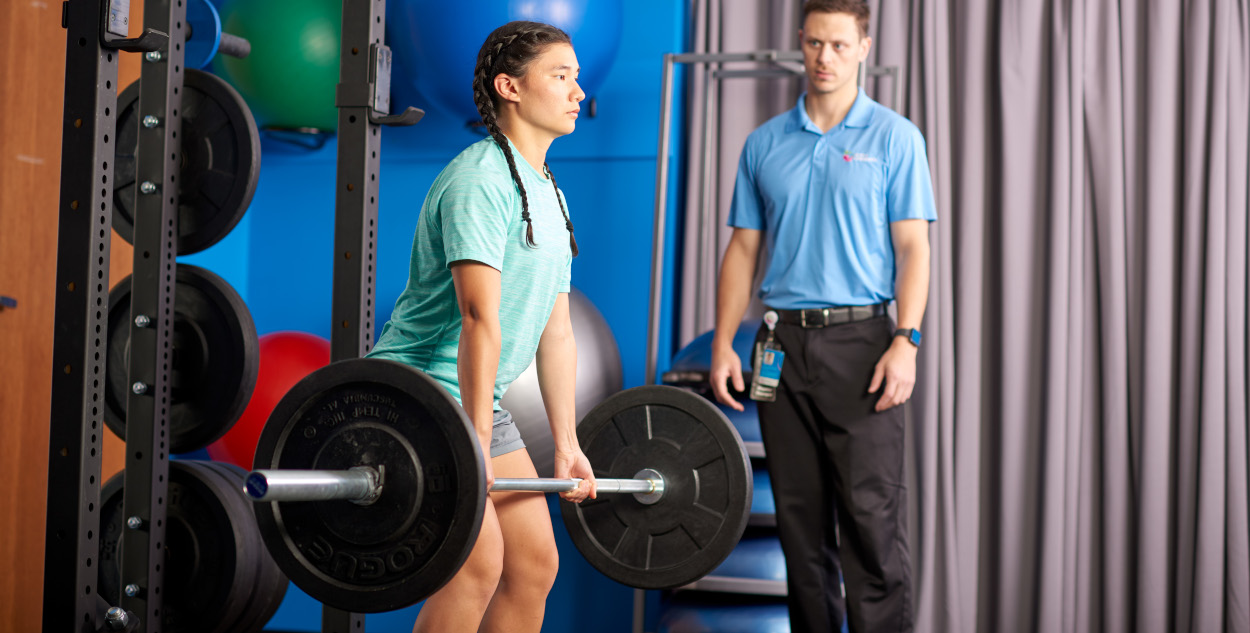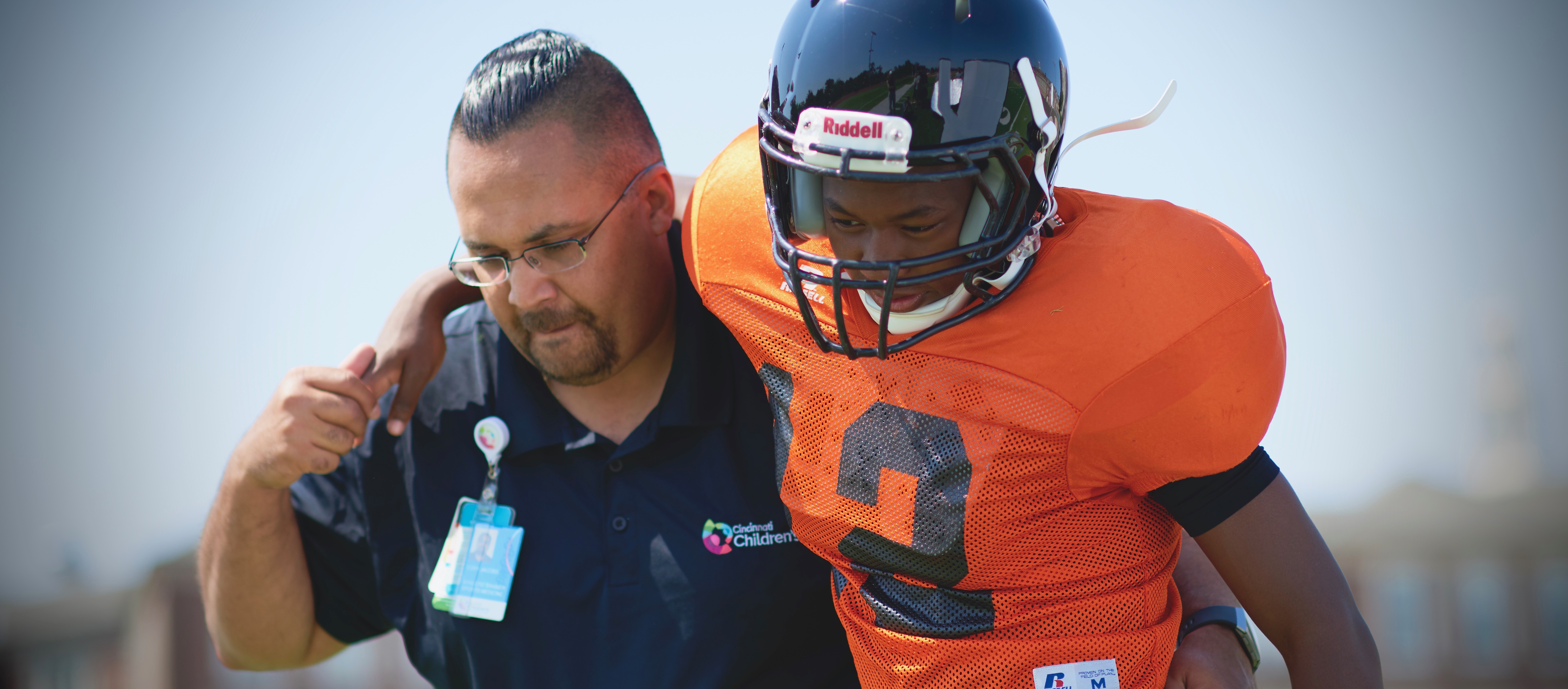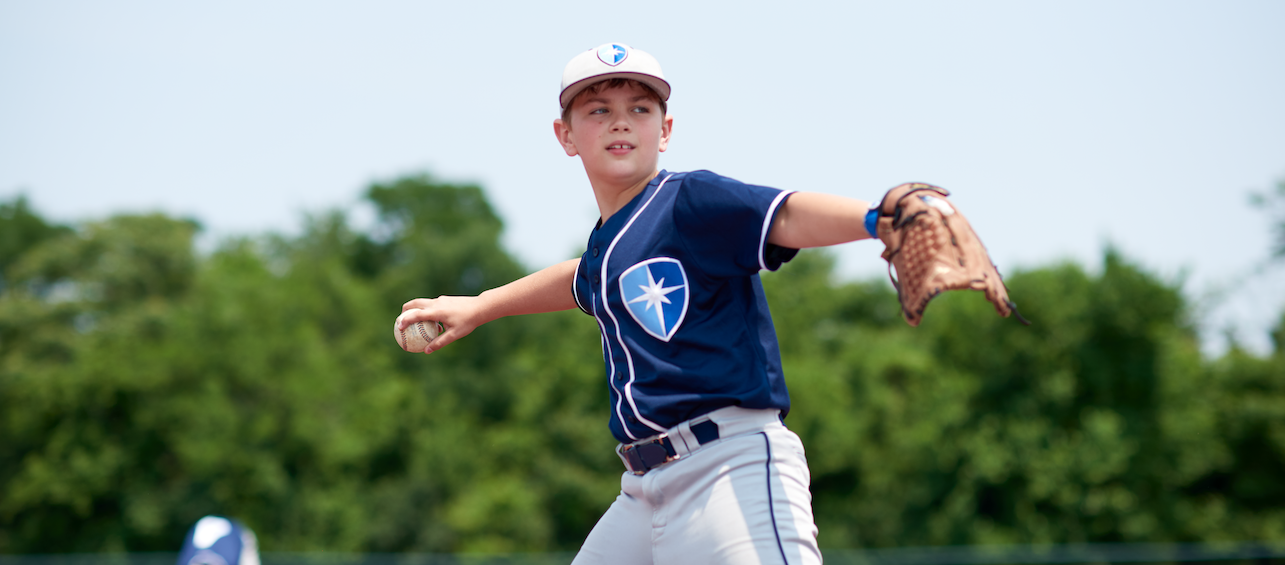Youth sports have become an incredibly competitive space. Year-round training. Sports specialization. Young athletes looking to gain an edge over their peers.
With no signs of this trend slowing down, many athletes consider adding strength training to their regimen and parents wonder if it’s safe for them. Or if it will damage their growth plates and subsequently stunt their growth. As a physical therapist who works with kids, many of them athletes, I’ve heard all sorts of myths about kids and strength training.
I’d like to dispel some of those misconceptions, because the benefits of strength training for the majority of kids outweigh the risks. Here are the most common misconceptions about strength training, and why I believe if kids have the interest and discipline, they should give it a try — so long as they have proper supervision.
Myth #1: Strength training is only for adults
If kids have the interest and can follow directions, it is okay for them to start learning how to strength train. Those factors are more important than age. This does not mean that they should be released into the weight room without any sort of supervision or direction. They need to be taught by a knowledgeable professional who can explain proper technique, movement patterns, safety guidelines and programming.
This also does not mean that a 7-year-old is going to be lifting the same amount of weight as a 15-year-old. We have to reframe what we consider strength training. A 7-year-old would need to master proper form with body weight exercises, like lunges and squats, before adding any weight.
Myth #2: There aren’t any benefits for kids to strength train
Kids and teens can reap all of the benefits of strength training, just like adults. There is a misconception that especially for kids who haven’t gone through puberty yet, that there’s nothing to gain because they can’t put on the same amount of muscle that their pubertal peers can. It’s true that teens who have gone through puberty will make more gains because they have more testosterone and other hormones. But that doesn’t mean that kids can’t benefit from strength training. Even if they haven’t gone through puberty, they can still gain strength — just not as much — as well as power and athletic performance. Not to mention that strength training helps to reduce the risk of sports-related injuries and bone fractures.
Myth #3: Strength training is only for athletes
Another misconception is that only athletes can benefit from strength training. This simply isn’t true. There are many benefits for all kids, not just the ones looking to make gains on a court or field. There are cardiovascular, strength and endurance benefits. Mental health benefits. Self-confidence. And potentially, setting them up for a life-long love of fitness.
Myth #4: Girls don’t need to strength train
Girls have just as much to gain from strength training as boys. And arguably, maybe even more. This is because female athletes who have gone through puberty are at risk for REDS, or relative energy deficiency syndrome. This happens when female athletes are expending more calories than they’re consuming, which puts them at risk for stress fractures. Strength training, especially whole-body lifts like squats and deadlifts, can help build up their bone structure so that they’re more resilient to fractures.
The other myth is that because girls don’t have as much testosterone, they can’t gain muscle and strength. This is simply not true. Yes, relatively speaking, girls will not gain as much muscle as boys, but they will reap all of the same benefits, including strength, power, and even larger muscles. That doesn’t mean that they’ll necessarily get bulky, however. Gaining muscle mass takes a lot of time and effort, and qualities such as strength and power can be improved upon without a significant increase in muscle size.
Myth #5: Strength training will stunt kids’ growth
This is probably the biggest myth about kids and strength training. There is no evidence to suggest that strength training will lead to stunted growth or damaged growth plates. That said, kids do need to be properly supervised and follow safety guidelines, as the majority of injuries that happen can be avoided with proper supervision and education. A study that compared youth versus adult weightlifting found that 77% of children who were injured during strength training had an accident, such as a dropped weight on a foot, not a muscle strain or broken bone due to lifting too much weight.
We do recommend that kids avoid maxing out — which means lifting one rep at the highest weight they can possibly lift. This is because it’s important for kids to learn and maintain proper form, and maxing out often leads to struggling and broken form, such as a rounded back. For example, if they’re lifting eight reps, they should feel like they could still lift another one or two when they’re done.
Myth #6: Kids don’t need rest days
Young athletes need rest days just like adults do. This is where having a professional teach kids proper programming can help. In general, kids, just like adults, should not lift the same muscle two days in a row. When we lift weights, the tiny fibers in our muscles get broken down. When the muscle repairs itself afterwards, the muscle gets bigger and stronger. If kids don’t allow their muscles time to recover, at best they won’t get stronger. In the worst-case scenario, they’re setting themselves up for injury.
To learn more about our weightlifting clinic, email weightlifting@cchmc.org or call 513-636-7333.





